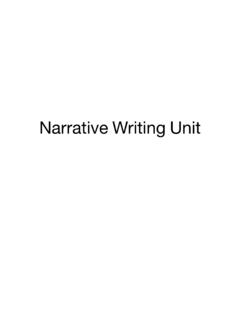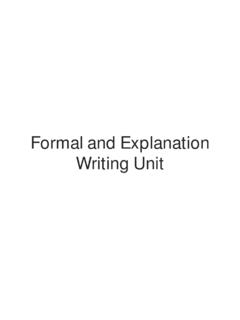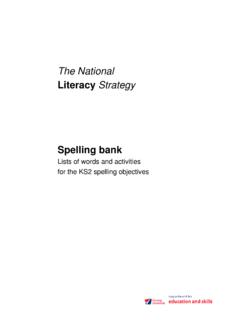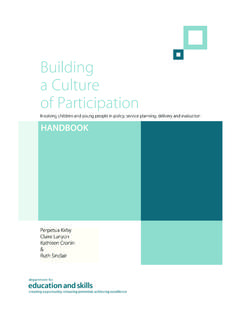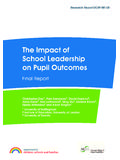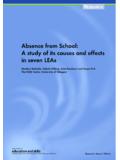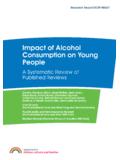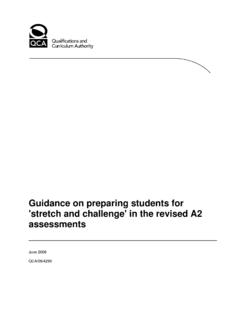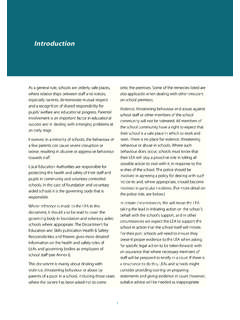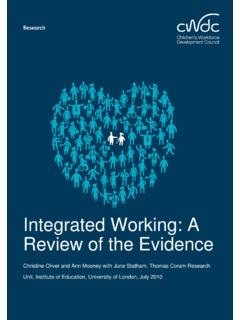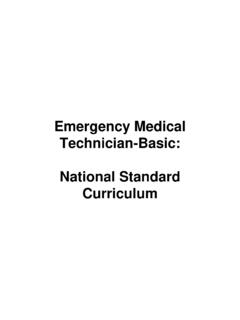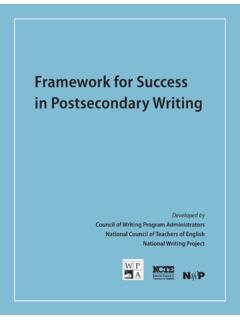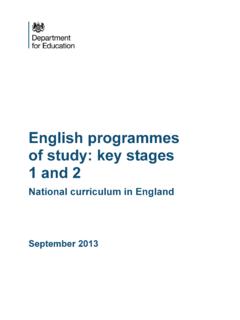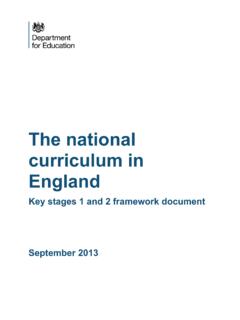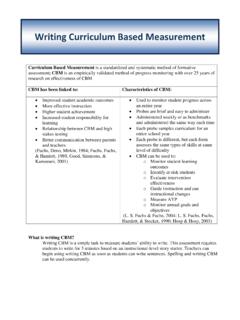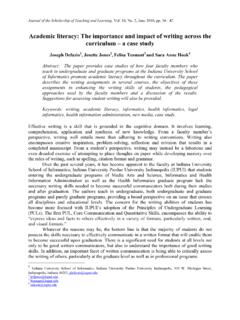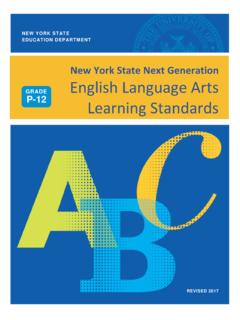Transcription of The National Curriculum Level descriptions for subjects
1 The National Curriculum Level descriptions for subjects The Qualifications and Curriculum Authority (QCA). is currently operating certain of its non-regulatory functions under the name Qualifications and Curriculum Development Agency (QCDA). The legal entity remains QCA, established under the Education Act 2007. QCA is an exempted charity under the Charities Act 1993. We want our website and publications to be widely accessible, so please contact us if we're not meeting your needs. Qualifications and Curriculum Development Agency 53-55 Butts Road Earlsdon Park Coventry CV1 3BH. Telephone: 0300 303 3010. Textphone: 0300 303 3012. Fax: 0300 303 3014. First published in February 2010. Crown copyright 2010. Qualifications and Curriculum Authority Ref QCDA/09/4675.
2 ISBN 978-1-84962-312-4. The National Curriculum Level descriptions contained in this publication are subject to Crown copyright protection and are reproduced with the permission of the Controller of OPSI. The additional information is copyright of the Qualifications and Curriculum Authority. By agreement between the Controller of OPSI and QCA, reproduction of any of the material in this publication is permitted in accordance with copyright guidance issued by OPSI. This guidance is available on request from the Office of Public Sector Information, 102 Petty France, London SW1H 9AJ. Tel: 020 8876. 3444 Email: Welcome . We have created this publication for all primary and secondary school teachers. It contains the full and updated Level descriptions for all National Curriculum subjects from Level 1 to exceptional performance.
3 Level descriptions are the criteria for assessing pupils' progress. Using the Level descriptions you will be able to make judgements about your pupils' performance in National Curriculum subjects . The related National Curriculum programmes of study in secondary, and areas of learning in primary, can be downloaded from The National Curriculum Level descriptions for subjects Welcome 1. Contents Overview 3. Art and design 6. Citizenship 9. Design and technology 12. English 15. 1 Speaking and listening 2 Reading 3 Writing Geography 19. History 22. Information and communication technology 25. Mathematics 28. 1 Using and applying mathematics 2 Number and algebra 3 Shape, space and measures 4 Statistics Modern foreign languages 34.
4 1 Listening and responding 2 Speaking 3 Reading and responding 4 Writing Music 39. Physical education 42. Religious education 45. 1 Learning about religion and belief 2 Learning from religion and belief Science 48. 1 How science works 2 Organisms, their behaviour and the environment 3 Materials, their properties and the Earth 4 Energy, forces and space 2 Contents The National Curriculum Level descriptions for subjects PHOTO REDACTED DUE TO THIRD PARTY RIGHTS OR OTHER LEGAL ISSUES. In all National Curriculum subjects , and Secondary schools Religious education, the criteria for When the new secondary Curriculum was implemented in September 2008, some assessing learners' progress are set out amendments were proposed to the Level in descriptions of performance at nine descriptions from Level 4 to exceptional levels for each attainment target ( levels performance to reflect changes to the 1 to 8 and exceptional performance').
5 Programmes of study. Level 2 represents expectations for most 7 year-olds, Level 4 represents A small but significant number of pupils at the end of key stage 3, including many who have expectations for most 11 year-olds and special educational needs, achieve at levels levels 5 to 6 represent expectations for below Level 4 and so it was important that these most 14 year-olds. levels were also reviewed. These descriptions of performance, This publication provides the full and updated originally established in 1995, allow set of revised Level descriptions for subject children and their parents, carers or specialist secondary teachers to allow them to make end of key stage 3 judgements about guardians, as well as their teachers, to their pupils' performance in National Curriculum see how well they are doing in relation subjects .
6 These supersede the sections on the to their prior attainment and to Level descriptions contained in the secondary expectations for children of their age. National Curriculum handbook (2008). The National Curriculum Level descriptions for subjects Overview 3. PHOTO REDACTED DUE TO THIRD PARTY RIGHTS OR OTHER LEGAL ISSUES. The revised Level descriptions in this booklet Primary schools will be used statutorily for the first time in The Government announced, in 2009, that secondary schools in summer 2011. This is the current subjects at key stages 1 and 2. when the first cohort of pupils to complete key would be reorganised as areas of learning stage 3 under the new Curriculum arrangements from September 2011.
7 It is anticipated that will be assessed at the end of year 9 and their statutory assessment will continue for English, attainment reported to parents, carers or mathematics and science and so the slightly guardians. New exemplification material is revised Level descriptions for these subjects being developed to illustrate National will formally apply for this purpose from 2011. standards in all subjects in the context of the They provide the basis for the criteria used new secondary Curriculum and this will be in Assessing Pupils' Progress (APP) and so available in the summer of 2010. schools can continue to develop their use of APP with confidence. At key stage 4, National qualifications are the main means of assessing attainment in When considering pupils' progress in other National Curriculum subjects .
8 Areas of the Curriculum , primary teachers will be able, from 2011, to refer to the revised subject-specific attainment targets and Level descriptions enclosed in this booklet. Although primary teachers aren't required to assess pupils in the full range of subjects , they will find these subject-specific targets useful as a basis for providing information to secondary schools, ensuring a smoother transition for pupils moving into key stage 3. 4 Overview The National Curriculum Level descriptions for subjects PHOTO REDACTED DUE TO THIRD PARTY RIGHTS OR OTHER LEGAL ISSUES. Assessing attainment at the end of a key stage Where to find out further information In deciding on a pupil's Level of attainment at The National Curriculum website the end of a key stage, teachers should judge provides guidance which Level description best fits the pupil's on the changes to the Level descriptions and performance.
9 When doing so, each description updates both primary and secondary teachers should be considered alongside descriptions on the statutory requirements relating to them. for adjacent levels . Users can also view case studies of good Arrangements for statutory assessment at the practice in assessment and download end of each key stage are set out in detail in exemplification materials of pupils' work. The Qualifications and Curriculum Development New materials exemplifying National standards Agency's annual booklets about Assessment for key stage 3 in foundation subjects will be and Reporting Arrangements (ARA for key accessible from this site in the summer of stages 1 and 2 and TARA for key stage 3). 2010. The core subjects will be available from the Department for Children, Schools and Families' website The National Curriculum Level descriptions for subjects Overview 5.
10 Art and design Art and design Level 1 Pupils respond to ideas. They explore a Level 5 Pupils take some creative risks when variety of materials and processes to create their exploring, experimenting and responding to ideas own work. They describe what they think and feel and selecting information and resources in order to about the work of others and what they have done develop their work. When designing and making, in their own work. they develop and use their technical knowledge and skills to manipulate the qualities of materials, Level 2 Pupils explore ideas and make some processes and the formal elements appropriately. choices about what they will do. They investigate They consider and discuss the ideas, methods and the nature and qualities of different materials and approaches that are used by artists, craftspeople processes, exercising some control over those and designers, relating these to both context and they use in their work.
